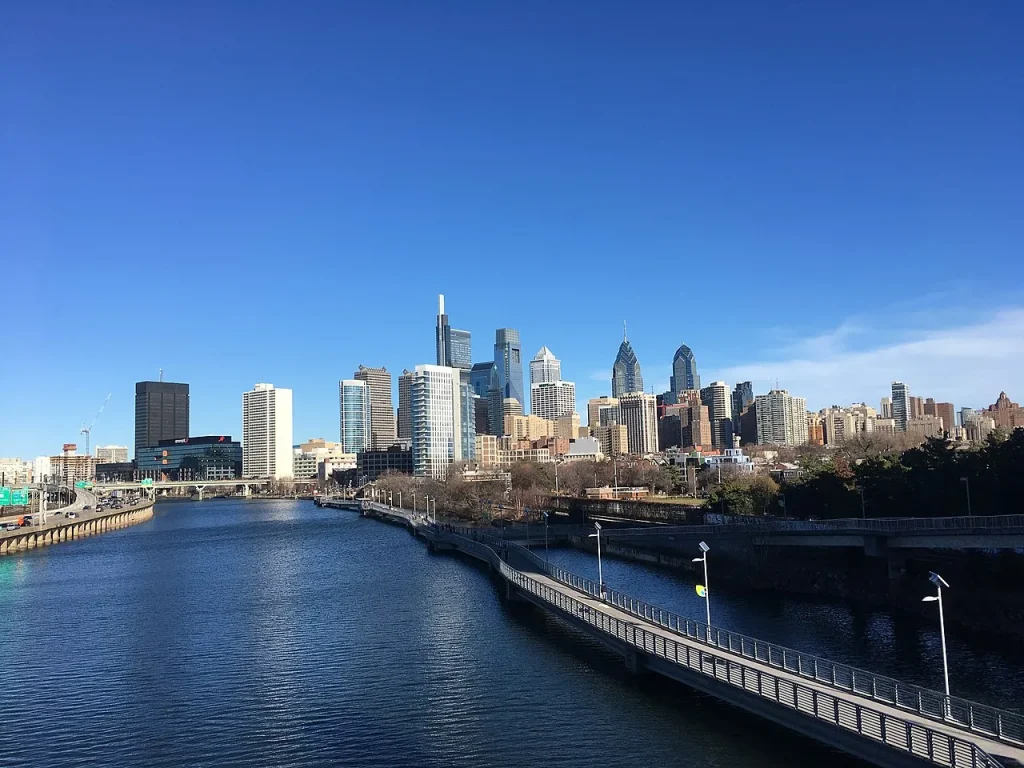Virginia’s Strategy to Retain College Graduates: Lessons from Philadelphia for Student-Athletes

As student-athletes, we often find ourselves navigating not only the physical demands of sports but also the academic and professional future ahead. One key consideration is where we’ll land after graduation. Many of us dream of thriving in our chosen careers, but the reality is that a significant number of college graduates, including athletes, leave their home states in search of better opportunities. Virginia faces this challenge, as many of its college graduates—athletes and non-athletes alike—leave the state for job prospects. However, there are lessons we can draw from cities like Philadelphia, which has turned around its reputation as a brain-drain city and now successfully retains its college-educated workforce.
Why This Matters for Student-Athletes
As student-athletes, we’re not just preparing for life on the field; we’re also building the foundation for our careers after sports. The key to making this transition smoothly lies in the connections we build while in school—through internships, networking, and staying connected to local job markets. This makes it important for Virginia, where many of us study and train, to retain more of its college graduates. Just as we aim to make lasting connections with coaches, teammates, and alumni, the state needs to focus on keeping graduates engaged within Virginia’s workforce.
The Philadelphia Example: Attracting and Retaining Graduates
One city that has successfully turned its brain-drain issue around is Philadelphia. Until recently, it was a city where many graduates left after college, seeking better opportunities elsewhere. But over the past few years, Philadelphia has made an impressive shift. According to a report by Technical.ly, the city’s economy has been reinvigorated largely by the concerted efforts of local universities, technology organizations, and business leaders. The goal was to make Philadelphia a more attractive place for graduates to remain after finishing their degrees.
For student-athletes, this focus on keeping graduates in the city is particularly relevant. Colleges and universities play a significant role in both sports and career development. If a city like Philadelphia can turn its graduate retention rate around, Virginia could learn a thing or two from their strategy.
The Role of Internships and Networking
Philadelphia’s strategy focused on internships, making sure that students—particularly those in tech and business fields—had access to opportunities that connected them directly with employers. For us as student-athletes, internships are an excellent way to bridge the gap between our academic training and professional goals. By participating in internships, we gain real-world experience, expand our professional networks, and often, secure job offers before graduation.
Virginia could benefit from a more concerted effort to create such internship opportunities across its universities, helping students not only in big cities like Northern Virginia but also in rural areas. Just as Philadelphia did, Virginia should encourage businesses to partner with colleges and offer positions that help students build a strong resume while contributing to the local economy.
The Impact on Rural Virginia
Virginia’s rural areas face additional challenges in retaining college graduates, especially when many of us are drawn to urban areas like Richmond or Northern Virginia. This is particularly true for rural schools where finding qualified professionals, especially teachers and health workers, has become difficult. Rural areas, like parts of Southwest and Southside Virginia, are seeing many of their best and brightest students leave for opportunities elsewhere. How can these areas retain the talents and skills of college graduates?
One potential solution lies in creating localized networks, similar to Philadelphia’s Campus Philly, which works tirelessly to keep students in the city. This could be a model for rural Virginia to follow, developing ways to keep in touch with college seniors and persuading them to come back home once their studies are completed. This could include creating job fairs, providing networking events, or offering state-funded relocation bonuses for graduates who return to work in their hometowns.
What Does This Mean for Us as Student-Athletes?
As we plan for life after sports, we must recognize that our time in college is not only about excelling on the field or court but also about creating strong professional networks. These connections will be vital as we transition from being student-athletes to professionals, whether in sports or in a different career.
To ensure that we are successful both as athletes and in the professional world, it’s important that Virginia’s economy provides opportunities for growth. If the state can follow the example of cities like Philadelphia, making a strong push to retain college graduates, it will help us—and many other student-athletes—secure a prosperous future. As we continue to prepare ourselves for our post-graduation journey, knowing that Virginia is offering competitive job opportunities will allow us to feel confident in staying and thriving in the state after our college years.
Conclusion: Building a Sustainable Future for Student-Athletes
Virginia’s ability to retain its college graduates, especially student-athletes, will play a key role in shaping the future of its economy. Just as Philadelphia has shown, the power of collaboration between universities, local businesses, and government is essential in creating an environment where graduates—athletes or otherwise—can stay and contribute to the local workforce. By focusing on internships, creating a strong alumni network, and fostering connections between education and industry, Virginia can retain more of its talented workforce.
For us as student-athletes, the lessons from Philadelphia and the strategies being discussed for Virginia’s rural areas will offer us opportunities to stay close to home, grow our careers, and contribute to the state that helped shape us both academically and athletically.

